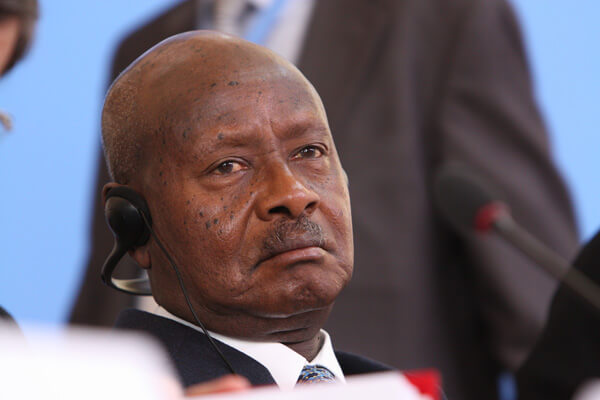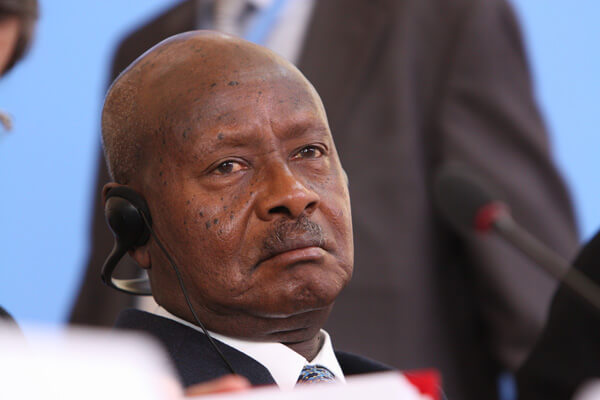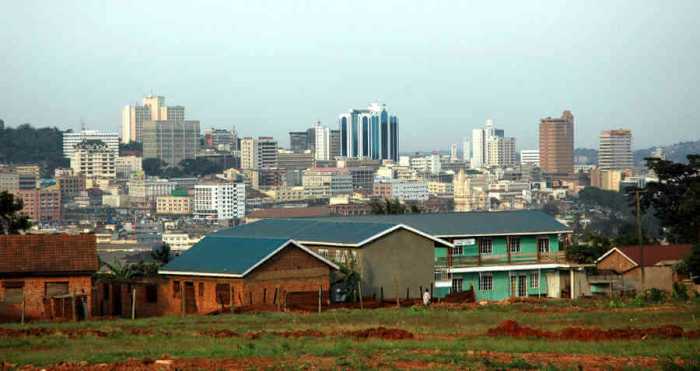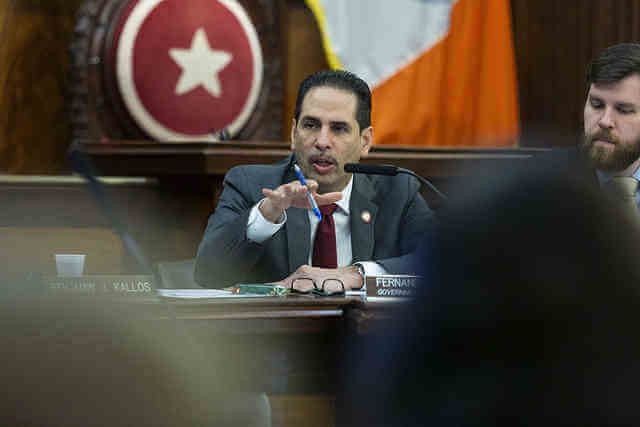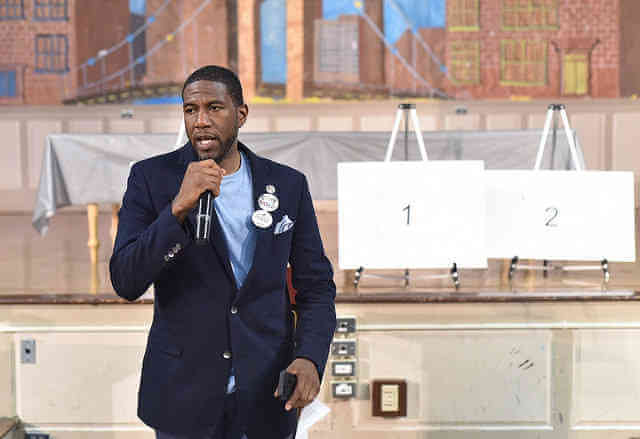Ugandan President Yoweri Museveni defied Western pressure February 24 and signed into law a measure –– with broad popularity in that nation –– criminalizing all forms of homosexual expression, aid to gay people, and even failure to report knowledge of those in violation.
The existing penalty for homosexual relations was life in prison under the British colonial-era law. The new law also covers lesbian sex for the first time. As the European Parliament Intergroup on LGBT Rights pointed out, the law “now forces parents, teachers, and doctors to report LGBTI persons to authorities” under threat of seven years in prison.
The Red Pepper, a right-wing Ugandan newspaper, published a cover story this week titled “Explosed! Uganda's Top 200 Homos Named” Another tabloid there, Rolling Stone, did a similar front page story in 2010, drawing attention to gay activist David Kato, who was subsequently murdered in his home. Ugandan activist Pepe Julian Onziema, a transman who was named in the Red Pepper story, told the Associated Press that many of those identified this week are “scared and they need help,” including to leave the country. Kasha Jacqueline Nabagesera, a lesbian activist also named, said, “The media witch-hunt is back.”
The hue and cry over the law has been loud from the West, with US Secretary of State John Kerry saying in a written statement that it “blatantly violates human rights obligations that Uganda’s Human Rights Commission itself has recognized are enshrined in Uganda’s constitution.”
Indeed, the one hope Ugandan LGBT activists now have of stopping the law is a court challenge.
East African nation follows Nigeria, as homophobic hate sweeps sub-Saharan Africa
Kerry said, “As President Obama stated, this legislation is not just morally wrong, it complicates a valued relationship. Now that this law has been enacted, we are beginning an internal review of our relationship with the Government of Uganda to ensure that all dimensions of our engagement, including assistance programs, uphold our anti-discrimination policies and principles and reflect our values.”
That is as far as Kerry would go. Over the past week, groups from the Human Rights Campaign (HRC) to Human Rights Watch to the American Jewish World Service (AJWS) — citing appeals from Ugandan LGBT activists to take bold action — called for the United States to recall its ambassadors to Uganda and Nigeria, which also recently enacted harsh anti-gay legislation.
Timi Gerson, director of advocacy at AJWS –– which works with Sexual Minorities Uganda (SMUG), an LGBT advocacy group in that nation, and is supporting its suit against American evangelical Scott Lively, whose agitation in Uganda inspired the move toward the anti-gay law –– said, “Our ambassadors should come back to Washington and have conversations about what this means for our relations. Serious conversation needs to be had and this would be a strong gesture. It rises to a different level.”
Gerson emphasized that the group only made this call for a recall of ambassadors at the urging of Uganda’s Civil Society Coalition on Human Rights & Constitutional Law, which on February 19 called for worldwide demonstrations against the bill, statements of condemnation from government, religious, and corporate leaders, and recall of ambassadors. The Ugandan coalition also pleaded for “technical and financial support” for its court challenge to the measure.
The coalition did not advocate cuts in aid to the country “because of the detrimental effects this will have on our national budget that supports all Ugandans.” The Dutch government, however, has moved to curtail aid. And the British government confirmed to Pink News that it stopped sending aid to the Ugandan government last year due to corruption and that all UK aid in that country is now channeled to multilateral aid agencies and non-governmental organizations, or NGOs.
UK gay human rights activist Peter Tatchell is calling for governments around the world to issue travel bans on and freeze the assets of principal leaders behind the anti-gay law, including Museveni, David Bahati, its primary parliamentary sponsor, and Lively. Tatchell called them “the ideological inheritors of Dr. Goebbels' hateful propaganda methods.”
Asked whether a complete break in diplomatic relations with the Ugandan government was appropriate, Charlie Joughlin, deputy press secretary for the Human Rights Campaign, wrote in an email, “The US needs continued diplomatic engagement in Uganda and Nigeria, but our US ambassadors should be temporarily recalled to Washington for consultation. We need a better strategy in these countries and we need to make it clear that we will not go on with business as usual. There must be consequences, real consequences for enacting legislation that deprives LGBT people of their human rights.”
In his speech at the bill signing, Museveni welcomed the reproach of the West. The Daily Monitor of Uganda reported that the president stressed, “Uganda is a rich country that does not need aid, because aid is in itself a problem.”
Back on February 18, Museveni said, “I would like to discourage the USA government from taking the line that this law will ‘complicate our valued relationship’ with the USA as President Obama said… Africans do not seek to impose their views on anybody. We do not want anybody to impose their views on us. This very debate was provoked by Western groups who come into our schools and try to recruit children into homosexuality. It is better to limit the damage rather than exacerbate it.”
Museveni also emphasized the sexual modesty of Ugandan culture, saying, “Are we interested in seeing your sexual acts –– we the public? I am not able to understand the logic of the Western culture. However, we Africans always keep our opinions to ourselves and never seek to impose our point of view on the others. If only they could let us alone.”
Human Rights Watch’s executive director Kenneth Roth tweeted, “In the name of African culture Ugandan Pres will sign anti-gay law pushed by US evangelists toughening British colonial ban.”
Museveni had earlier indicated he might not sign the bill if it could be proven to his satisfaction that a homosexual orientation was inborn. He commissioned a study from his Ministry of Health on the subject, but the Daily Monitor reported that he listened to Ugandan members of parliament on the task force who “falsified the information contained in the report given by medical and psychological experts, twisting it to show that homosexuality should indeed be further criminalized.”
In one instance, the report from the ruling National Resistance Movement said, “Presidential Adviser on Science Dr. Richard Tushemereirwe stated that homosexuality has serious Public Health consequences and should therefore not be tolerated.”
The doctor was actually not a member of the scientists’ panel. And the Scientists Consensus Statement took a much more nuanced view than Museveni and other politicians claimed, concluding “that homosexuality is not a disease or an ‘abnormality.’”
Museveni said at the bill signing, “Can somebody be homosexual purely by nature without nurture? The answer is: ‘No.’ No study has shown that. Since nurture is the main cause of homosexuality, then society can do something about it to discourage the trends.”
Anti-gay campaigns are sweeping sub-Saharan Africa, with similar legislation signed by Nigerian President Goodluck Jonathan in January triggering mob attacks on people believed to be gay and in the north, where Sharia law rules, public whippings of those convicted of homosexuality.
In Cameroon, Richard Kwa Bette, the vice president of the LGBT group Alternatives-Cameroon, was arrested in Doula. In a statement, the group said Bette was on a list of activists prepared by a man arrested for theft.
In Gambia, President Yahya Jammeh said, “We will fight these vermin called homosexuals or gays the same way we are fighting malaria-causing mosquitoes, if not more aggressively. As far as I am concerned, LGBT can only stand for Leprosy, Gonorrhea, Bacteria, and Tuberculosis, all of which are detrimental to human existence.”
The new anti-gay laws enacted have resulted not just in the scapegoating of gay people, but in a poisonous witch-hunt atmosphere where anyone can be accused of homosexuality and persecuted. In Gishri, a village outside of the Nigerian capital, 12 gay men were rounded up and beaten by villagers in front of police, who did not intercede. When the mob of 40 went to torch the homes of the men, a woman stopped them and accused the attackers of trying to cover up their own crimes of having robbed these homes.
According to AJWS’s Gerson, the assault on Africa’s LGBT community is part of a broader crackdown on free expression.
“The anti-homosexuality bill in Uganda is one of a series of violations in the past year, including curbing freedom of assembly, an anti-mini-skirt law, and one banning low-cut blouses,” she said.

